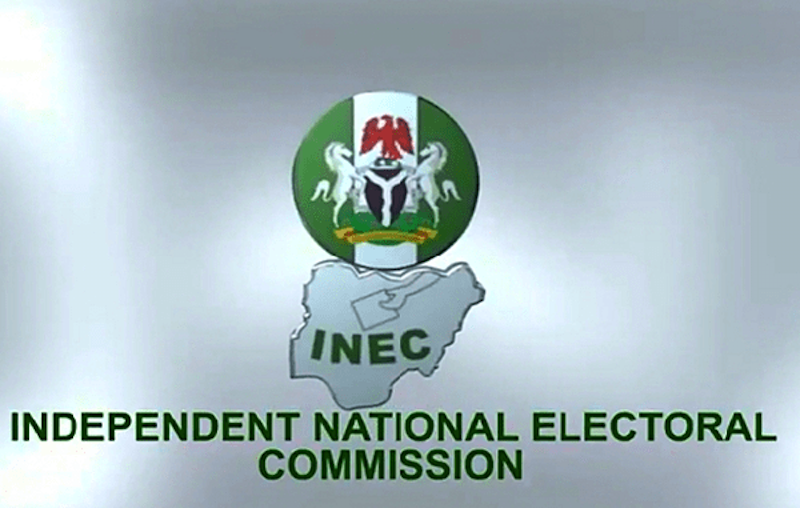Politics
National Assembly, INEC Clash over Proposed Voting Rights for Child-wives

•••Commission: Voting age remains 18, amendment inferior to constitution
•••Falana explains why proposed modification can’t succeed
•••Proposal conflicts spirit of constitution, Usoro posits
•••Odinkalu, women groups kick
Controversy over the planned introduction of underage voting, widely alleged to be disguised in a cloak of child-wives’ rights by the National Assembly Joint Committee on the Independent National Electoral Commission (INEC), has escalated, with INEC insisting on the sacrosanctity of the constitutionally recognised voting age of 18 years. INEC said no matter the amendments to the Electoral Act, it will remain inferior to the 1999 Constitution.
Some legal experts also gave voice to the debate.
Renowned human rights activist and Senior Advocate of Nigeria (SAN), Mr. Femi Falana, said the proposed amendment would fail because about 25 of the 36 states of the federation, including the Federal Capital Territory (FCT), had already adopted, enacted, and domesticated the Child Rights Act.
Similarly, a former president of the Nigerian Bar Association (NBA), Paul Usoro, said the planned amendment of the Electoral Act to accommodate child-wives voting conflicted with the spirit of the Nigerian constitution. Usoro said child marriages were illegal and attracted penalties under the Child Rights Act.
A former chairman, Governing Council of the National Human Rights Commission, Dr. Chidi Odinkalu, and some women groups have also kicked against the alteration, describing it as a criminal abuse of the constitution.
The National Assembly Joint Committee on INEC had recommended that married girls under the age of 18, otherwise known as child-wives, should be recognised as eligible voters. The committee made the recommendation to a technical committee appointed to work on a new electoral act proposed by the federal lawmakers. The technical committee is made up of lawyers, lawmakers, INEC officials, and civil society organisations (CSOs).
At a public hearing organised by the joint panel a fortnight ago, some stakeholders recommended that married underage girls should be considered eligible to vote.
Chairman, Senate Committee on INEC, Senator Kabiru Gaya (APC, Kano), said the recommendation was a unanimous decision of the joint panel.
Gaya said, “The joint committee has proposed that if a lady, who is not up to 18 years, is married, she should be considered to be mature enough and be eligible to vote.”
But reacting to the proposal in an interview with THISDAY, INEC’s National Commissioner and Chairman, Information and Voter Education, Festus Okoye, said any amendment of the electoral law inconsistent with the constitution remained invalid.
According to him, “The right to vote is fundamental to democracy and it is given to those that understand its import and importance and who can make rational choices and decisions. In this context, sovereignty is imbedded and imbued in the people and governments derive their power and authority through the exercise of sovereignty by the people.
“In Nigeria, the right to vote is a constitutional right and the constitution is the fundamental law of the land. By section 1(3) of the Constitution of the Federal Republic of Nigeria, 1999 (as amended), if any other law is inconsistent with the provisions of the constitution, the constitution shall prevail and that other law shall to the extent of the inconsistency remain void.”
Okoye explained, “By sections 77(2) and 117(2) of the Constitution of the Federal Republic of Nigeria, 1999 (as amended), every citizen of Nigeria, who has attained the age of 18 years residing in Nigeria at the time of registration of voters for purposes of election to any legislative house, shall be entitled to be registered as a voter for the election.
“Furthermore, by section 132(5) and 178(5) of the constitution, every person who is registered to vote at an election of a member of a legislative house shall be entitled to vote at an election to the office of President and Governor of a State.
“The implication of the combined provisions of sections 77(2), 117(2), 132(5) and 178(5) of the constitution is that the National Assembly can only alter the voting age in Nigeria through the constitutional alteration of sections 77(2), 117(2) 132(5) and 178(5), utilising its legislative powers in section 9 of the constitution.”
The INEC commissioner said the National Assembly could not change or alter the voting age in Nigeria through the instrumentality of the Electoral Act. “In the hierarchy of laws in Nigeria, the Electoral Act is an inferior legislation,” he stated, adding, “Since the constitution has made elaborate provision on the voting age in Nigeria, the legislative powers of the National Assembly cannot be exercised inconsistently with the constitution. In other words, an inferior legislation cannot add to or subtract from what the constitution has provided.
“If Nigerians believe that the voting age should be lowered, then the constitution must be altered to provide for it. It cannot be brought about through amending the Electoral Act.”
He also spoke on the spirit of the constitution with the regard to voting age.
Okoye stated, “The present confusion relating to voting age for all married women is a product of a clear misunderstanding of the intendment of section 29 of the constitution relating to renunciation of citizenship. Section 29(1) of the constitution provides that any citizen of Nigeria of full age, who wishes to renounce his Nigerian citizenship, shall make a declaration in the prescribed manner for the renunciation. For the purpose of renunciation of citizenship, section 29(4)(b) of the constitution deems any woman who is married to be of full age.
“Section 29 of the constitution has nothing to do with voters’ registration but deals solely and specifically with renunciation of citizenship. Therefore, to change the voting age in Nigeria, the National Assembly shall alter the provisions of the constitution and the proposal for such must be supported by two thirds majority of all the members of the National Assembly and approved by a resolution of the Houses of Assembly of not less than two-thirds of all the states.
“The Electoral Act cannot provide for the age threshold for voters’ registration, as the constitution has covered the field in that area.”
Falana spoke in a similar vein. He said, “Even though Section 29 (4) of the Constitution of the Federal Republic of Nigeria regards every woman who is married to be of full age, Nigeria has ratified the Child Rights Convention and enacted the Child Rights Act, which regards any person under 18 years as a child.”
The Lagos-based lawyer also said, “The amendment cannot succeed as 25 out of 36 states have adopted and enacted the Child Rights Act. Under the law applicable in the 25 states and FCT, any person under 18 is a child.
“It is so sad that child marriage is being promoted by some legislators at a time that Saudi Arabia has banned the backward practice, which has nothing to do with the religion of Islam.”
On his part, Usoro said, “Actually, the age for eligible voters is stipulated by Section 12(1)(b) of the Electoral Act 2010 (as amended), which states that ‘a person shall be qualified to be registered as a voter if such a person has attained the age of 18 years’. It is not a stipulation of the constitution.
“That said, do we need to amend this unequivocal and unconditional provision of the Electoral Act to accommodate child-brides that are under 18 years of age? That would actually conflict with Section 21 of the Child Rights Act, Laws of the Federation of Nigeria, 2004, which in unmistakable terms and for unimpeachable reasons, prohibits child marriage by stipulating that ‘no person under the age of 18 years is capable of contracting a valid marriage, and accordingly, a marriage so contracted is null and void and of no effect whatsoever’.”
The former NBA president stressed that there were penalties in the Child Rights Act against adults, who engaged in, perpetrated or promoted such child marriages and betrothals.
He stated, “The point to note is that a person under 18 is universally considered a child or a minor and, therefore, subject to parental control and protection. Indeed, the Child Rights Act in its Section 277 defines a child as ‘a person under the age of 18 years’ and the ‘age of maturity’ as ‘the age at which a person attains the age of 18 years’.
“Those are the benchmarks that are used universally by the civilised world in which ranks we number ourselves and that is the benchmark that informs the voting age of 18 in countries with systems of democracy and laws similar to ours, notably the United States of America (see the 26th Amendment to the US Constitution) and the United Kingdom (see Representation of People Act, 1969).
“Apart from the illegality of opening the voting eligibility window for child brides under 18, pursuant to the express provisions of the Child Rights Act, as afore stated, we should also worry about the floodgates that such a move might open. If child brides are permitted to vote, why should we discriminate against our precocious kids (boys and girls) under 18, who now graduate with outstanding classes of first degrees and diplomas, but are not permitted to vote?”
Usoro wondered why the lawmakers did not also propose that child labourers should be allowed to vote. He said, “The reason for that blanket exclusion is simple: despite their circumstances, they are all still minors and yet to attain the age of maturity, which in general terms would imbue them with the discernment for independent judgments for which they can be held accountable. We should not underestimate the essence of accountability.
“Children under 18 are generally not held accountable for their actions, because they are yet to attain the age of maturity – this is enshrined in our criminal statutes, among others. Voting is a major consequential undertaking and should be permitted only for those persons, who have attained the age of maturity and understand and can be held accountable and responsible for the consequences of their actions, including, but not limited to, voting in governments and persons into office.”
Usoro advised the National Assembly, saying, “What we should all do is actually to enlarge the coast of child protection by faithfully and fully enforcing the provisions of the Child Rights Act and not find ways to subvert the provisions of the Act by, for example, reducing voting age eligibility for child brides.
“Such subversion of the laws would have huge ramifications and consequences for our country and for the individuals in whose favour we purport to so subvert the laws. With the greatest respect to our legislators, that is not one of the significant challenges facing us as a nation right now and we should not elevate the voting amendment to that status howsoever.”
Odinkalu, Women Groups Kick Against Amendment
Odinkalu called the proposed amendment of the Electoral Act a criminal abuse of the constitution, saying, “Abuse upon abuse! It’s bad enough to advertise a tradition of abuse inherent in the practice of child brides in today’s world.
“Rather than commit to eliminating that, they seek to incentivise it and grant it electoral advantage. That is criminal abuse of the constitution.”
The Nigerian Feminist Forum said the National Assembly should be ashamed for taking part in a deliberate act of misconduct and injustice by legitimising the suffering of underage girls forced into marriage rather than being put in school.
Speaking on behalf of the forum, Ihuoma Obibi reminded the National Assembly that the Child Rights Act recognised children as those below 18 years and called on the legislature not to use the bodies of Nigerian women to play the politics of who would rule the country.
Obibi said, “The National Assembly should remember that the Equal Opportunities Bill needs to be passed and has been there for more than 12 years. This in itself is an utter disgrace and allows us to question exactly what the lawmakers are doing there.”
President, Women Arise, Dr. Joe Okei Odumakin, said the amendment, if pushed through, would encourage child marriage. Odumakin called on members of the National Assembly to throw “this horrible proposal into the trash can, as it does not in any way present us as a serious nation committed to the advancement of the future of the girl child.”
She said it was worrisome that at a time the world was improving upon every known framework and advocacy towards advancing girl child education and an end to underage marriage, some politicians were making moves to further worsen the menace of child marriage by advancing a terrible practice for selfish political gain.
“The implication of allowing such amendment in our electoral law is simply that more of our underage girls will be pushed into early marriages by politicians capitalising on pervasive poverty, particularly in the northern part of the country, just for selfish political advantages,” Odumakin said. She advised the National Assembly to embark on amendments that would improve the sanctity of the electoral process, such as introduction of electronic voting, punishment for electoral offenders, and similar issues.




